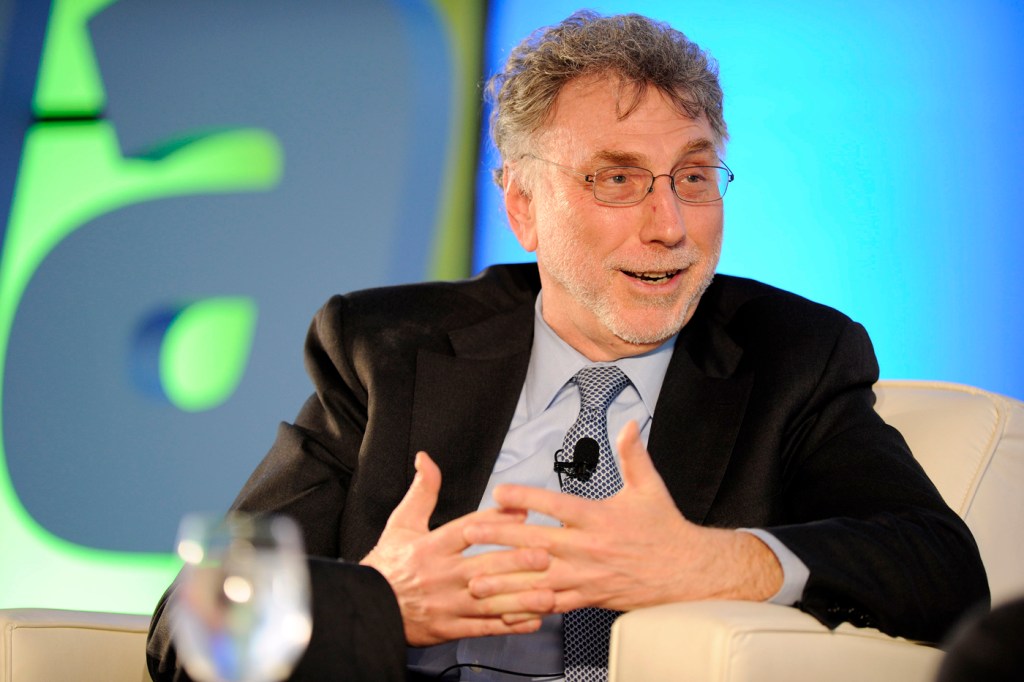The future of media is changing—and changing fast

In an address on the future of media, in a time of endless change, Marty Baron, a respected journalist and Pulitzer Prize-winning editor, chose to begin his talk with something he says must remain constant.
A mission of truth telling.
“The public expects that of us,” Baron, the executive editor of The Washington Post, said Thursday afternoon before a capacity crowd that convened in the event space on the 17th floor of Northeastern’s East Village. “If we fail to pursue the truth and tell it unflinchingly because we are fearful we’ll be unpopular or because powerful interests will oppose us, the public will not forgive us.”
Baron’s talk marked this semester’s final installment of Northeastern’s presidential speaker series “The Future of…,” which explores what’s on the horizon for topics that shape our lives, such as media, food, and dating.
[Read a full transcript of Baron’s opening remarks.]
Baron has 40 years of experience as a journalist. Prior to taking The Washington Post job in 2013, he served as editor of The Boston Globe from 2001 to 2012. During his tenure, the Globe won six Pulitzer Prizes, including one for public service in 2003 for the newspaper’s investigation and reporting of the Catholic Church priest sex abuse scandal.
He’s held top editor positions at various newspapers across the country including the New York Times, Los Angeles Times, and Miami Herald.
Baron imagines what the reaction would be like if the idea for newspapers was pitched today
When examining the future of media, Baron said there is one thing to be sure of: “There will be change and change will come faster than ever.” He noted that there are numerous themes the media must address in order to succeed in that future, such as embracing a new mobile society, getting better at listening, and recognizing that dominance in the field is up for grabs.
The greatest peril facing the future of media, Baron said, is people choose their own facts, rather than than disseminating reality from fiction.
“This could well define the future of media, overwhelming everything else that consumes our attention,” Baron said. “We need to acknowledge this challenge, we need to confront it, we need to find answers…we do not have much time.”
Following his remarks, Baron sat down with Northeastern University President Joseph E. Aoun for a Q&A.
Baron discusses his response to President Barack Obama criticizing the media for being “click driven”
With many journalism students and educators in the audience, Aoun asked Baron, as an executive editor, what skills he seeks in journalists.
“It used to be in our business that we tried to hire people who would learn from us,” Baron replied. “Now we look for people who can teach us something we don’t know. We also look for people who can use a lot of the new tools we have and are not intimidated by technology.”
Having spent more than a decade in Boston, Baron noted that he has observed Northeastern quite closely and commended the university for its limitless ambitions.
“(Northeastern) has demonstrated that innovation is possible and can succeed, even for old institutions in the oldest fields,” he said. “And there is a lesson there for all of us in media.”